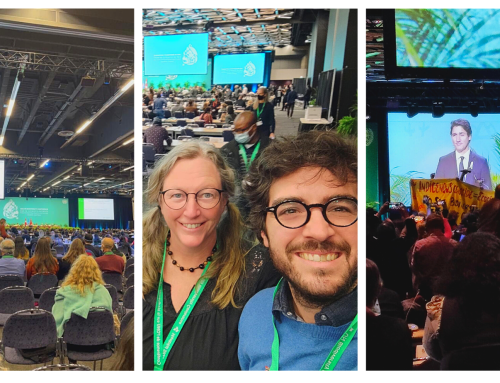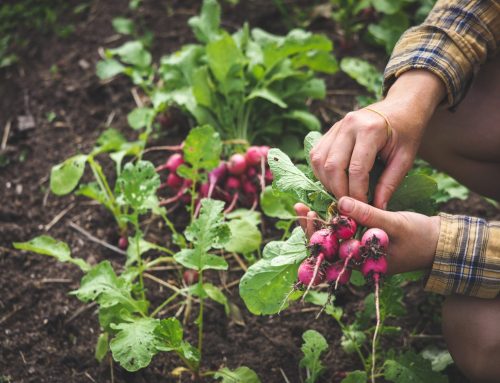The Australian Food Sovereignty Alliance (AFSA) is calling on the NSW Government to secure a future that encourages regenerative farmers by ensuring regulatory burdens on small-scale pastured livestock producers are commensurate with the low risk they pose to their communities.
The Government states that the aim of its proposed planning reforms are to ‘support the development and management of intensive livestock agriculture’ through:
- Exemptions for small-scale livestock operators in non-sensitive locations; and
- Clarification of the definitions and thresholds for intensive livestock agriculture requiring development consent.
The Government claims that the ‘proposed amendments will illustrate a clear difference between extensive and intensive agriculture land uses, making it easier for industry and applicants.’
And yet by conflating all sizes and types of pig and poultry farms into one category, the package of reforms released by the NSW Government presents a major risk to the future of small-scale free-range pig and poultry farming.
Under the new reforms, all pig and poultry farms, regardless of size or production model, will be considered ‘intensive livestock agriculture.’ A farm with 25 sows on pasture will be called ‘intensive’ just like a shed with 2000 sows inside.
While the Government has retained thresholds that enable an exemption from the requirement for development consent – for those farms with less than 1000 birds or 200 pigs or 20 sows – the introduction of a 500m setback from neighbouring dwellings or environmentally sensitive areas that triggers a Development Application is a major barrier for pastured pig and poultry farming on small acreages.
AFSA supports regulation of farming that protects human and animal health and preserves environment and amenity. We call on the NSW Government to amend the proposals to address the following key concerns:
- Revise the definitions around extensive (outdoors on pasture) as opposed to intensive (confined in sheds) animal husbandry. Small-scale, low-risk farms should be excluded from the definition of ‘intensive’ or allowed in the definition of ‘extensive.’
- Reduce the proposed 500m setback (buffer zone) between animals and neighbouring dwellings to allow the operation of a pastured pig or poultry farm on a smaller or narrow block without requirement for a Development Application. Any setback should take into account stocking rates and rotational grazing practices undertaken by most small-scale regenerative farmers.
- The definition of intensive pig or poultry farms should only apply to farms with a stocking rate that clearly presents a higher risk to environment and amenity, not an arbitrary number of animals unassociated with land size or production model.
Pastured pig and poultry farms must be unshackled from the negative environmental and social consequences[1] of their industrial counterparts and treated independently, because they simply do not pose a significant risk to environment or amenity.
Penny Kothe, pastured pig and poultry farmer and owner of Caroola Farm in Mulloon, notes that, ‘a 500m buffer means that almost all small-scale pig and poultry farms would require costly council approvals. This could cause the death of truly free-range pig and poultry farmers. It will place limits on our future ability to farm in a more sustainable and ethical way. These reforms will definitely be a deterrent to new farmers, at a time when we desperately need to be encouraging people to enter the industry.’
Cameron Mynott of Australian Pasture Fresh says, ‘it is imperative for the future of sustainable, ethical, regenerative farming, that small-scale farmers be able to run under a common-sense, outcomes-based legislation. From a risk mitigation perspective, applying measures and controls to all farms irrespective of their actual size and operations is both counter-intuitive and counterproductive. It has been proven, globally, that animals raised in a pastured environment, with rotational grazing and mobile infrastructure, create none of the issues or risks that the proposed legislation seeks to mitigate.’
‘Applying a simple to understand head to hectare ratio to further define “intensive” is not only fair and reasonable, but will ensure NSW does not see the devastation to Australian family farms that Victoria is currently experiencing. It’s heartbreaking to speak to other farmers who are having to close their operations down due to legislative burdens.’
State governments must take heed of increased community expectations for ethical and ecologically-sound produce, and support those who farm this way to meet the growing demand. This is especially pertinent at a time when Australia faces a changing climate and dwindling resources. The current draft policies would deter future farmers from entering farming, at a time when Australia has fewer farmers than ever before.
AFSA President Tammi Jonas states, ‘A food sovereign and secure future depends on appropriate planning controls that preserve farm land in perpetuity. Legislation should also protect the rights of all people to access nutritious and culturally-appropriate food produced in ethical and ecologically-sound ways, and their right to democratically determine their own food and agriculture systems.’
CONTACT:
- Tammi Jonas, President M: 0422 429 362
- Sarah de Wit, Paralegal M: 0449 128 992
E: admin@afsa.org.au
[1] https://www.ncbi.nlm.nih.gov/pmc/articles/PMC2367646/




